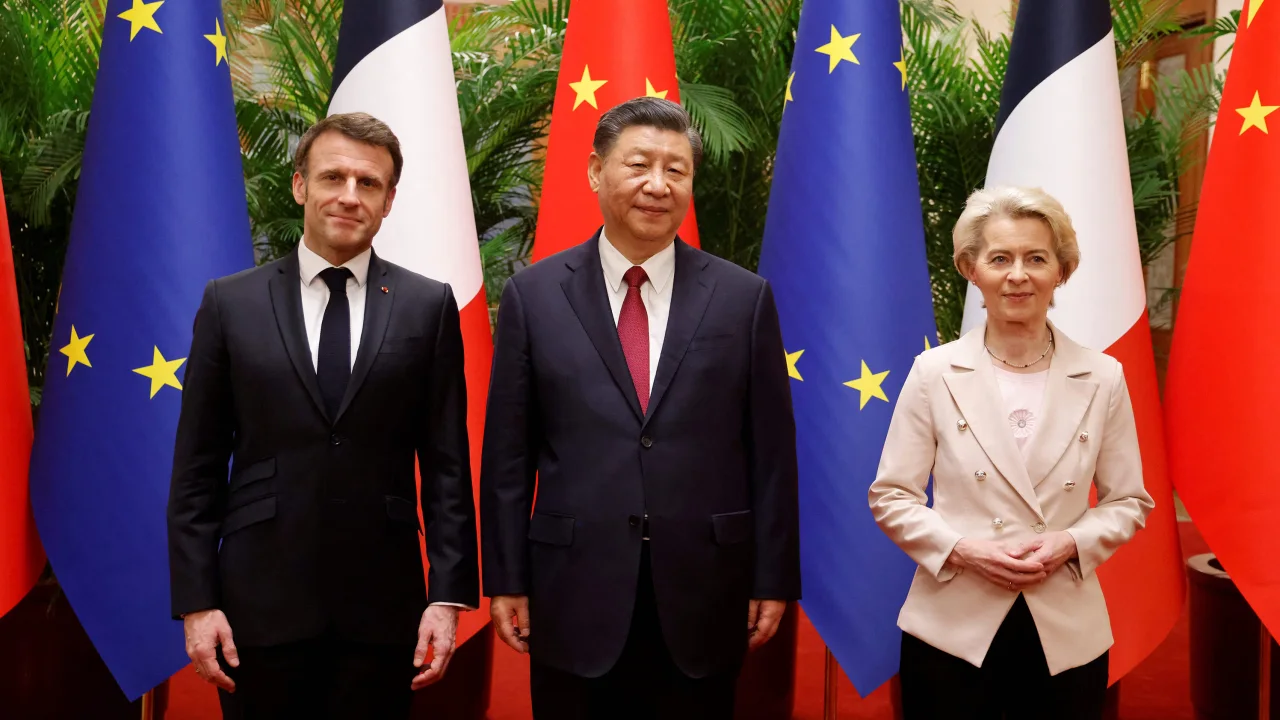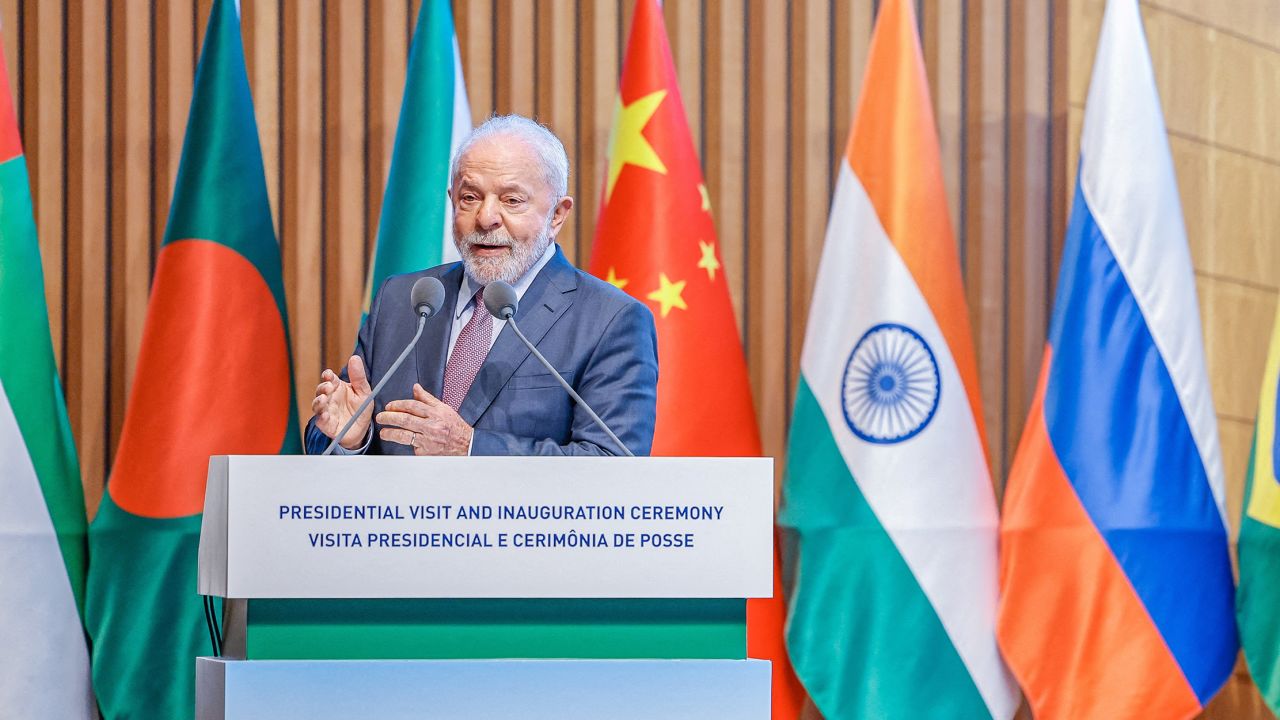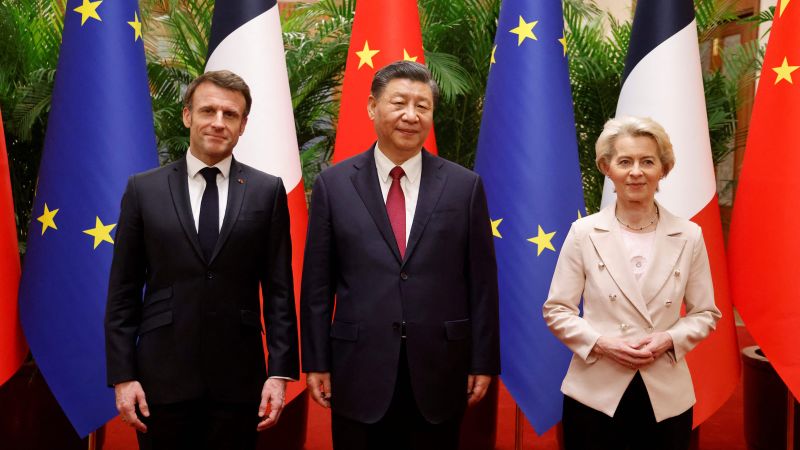This Was a Good Week for China and Xi Jinping
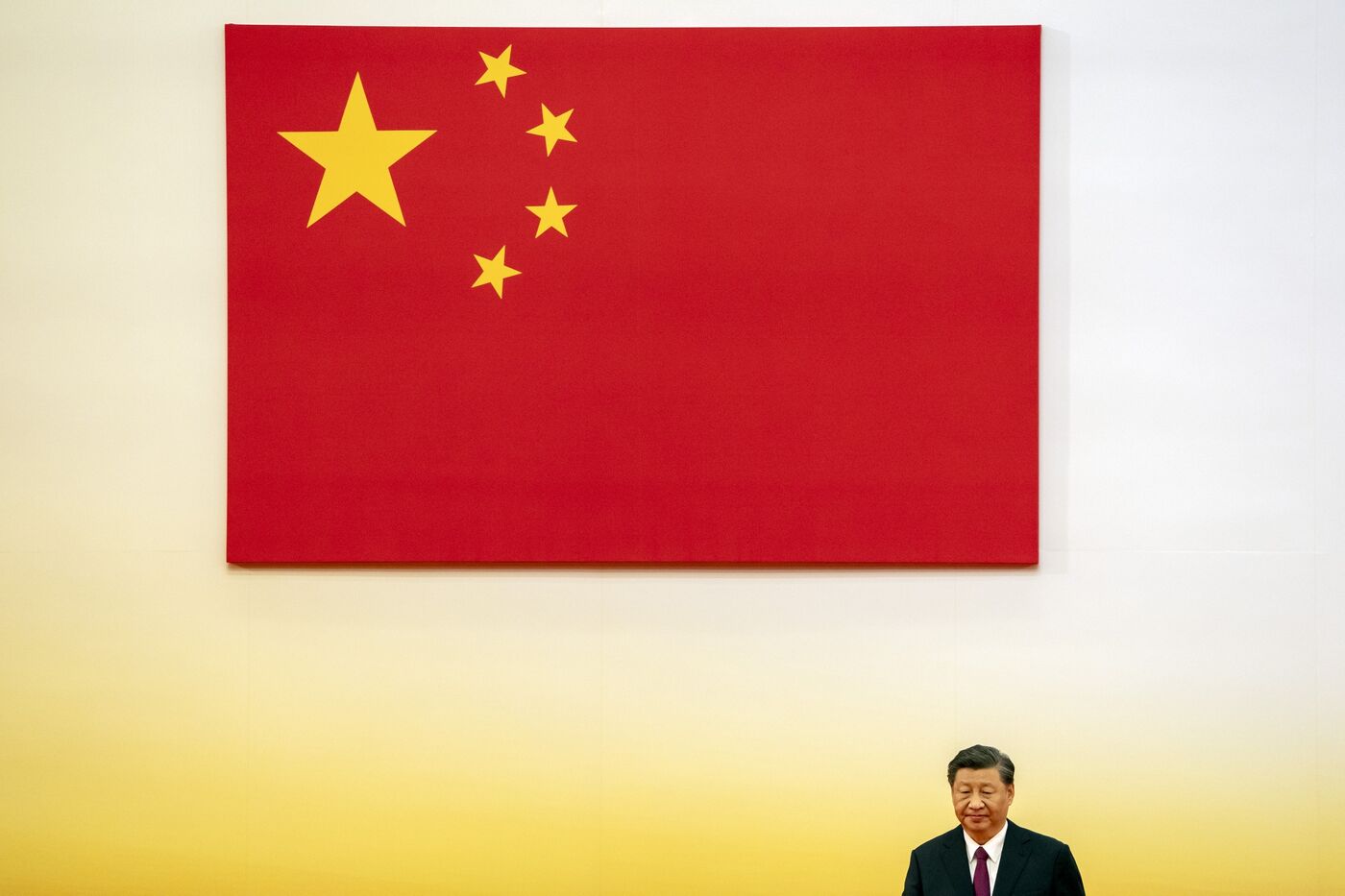
Whatever else the Pentagon leaks may eventually turn up, they expose two realities about US intelligence gathering that China must be relishing.
The first is that Washington has no qualms about the targets of its spying, whether it be adversaries or allies. The second, painfully demonstrated by the dump of classified documents on a gaming site, is that the proceeds of that surveillance, even after the WikiLeaks and Edward Snowden revelations, are still incredibly badly guarded.
While neither takeaway should surprise cynical onlookers, the drip-feed of embarrassing revelations still represents a very public own-goal by the US in the eyes of the world.
Key reading:
- Xi Hosts Brazil’s Lula in Diplomatic Push for Ukraine Cease-Fire
- France’s Macron Defends Stance on US, China After Backlash
- All We Know About the Leak of Classified US Military Documents: Q&A
- Lula to Visit Huawei Site in Shanghai, Potentially Irking US
- China Exports Unexpectedly Rise in Positive Sign for Economy
The weekend brought Emmanuel Macron’s comments on the need for Europe to forge its own path independent of the US, while casting doubt on aiding Taiwan in the event of conflict with Beijing.
Even leaving aside the merits of his argument, the French president’s remarks revealed fresh European divisions over attitudes to both the US and China.
Today it’s Brazilian President Luiz Inacio Lula da Silva’s turn to thumb his nose at Washington, as he visits US-sanctioned Huawei Technologies before a meeting with Xi in Beijing tomorrow, when the two will discuss a proposal to achieve a cease-fire in Ukraine — an effort dismissed by the US.
Brazil-China Trade
Commodities correspond to about 75% of Brazil's total exports to ChinaSource: Brazil Foreign Trade Ministry
Unlike Macron’s pretensions to speak for Europe, Lula does have a claim to represent Latin America as the leader of its biggest economy, and by extension, the Global South. He’s made clear that he won’t meekly follow the US line on Russia or China.
That’s a win for China’s president.
As he basks in new figures showing the economic outlook improving, Xi can reflect on a pretty good week in his standoff with Washington.
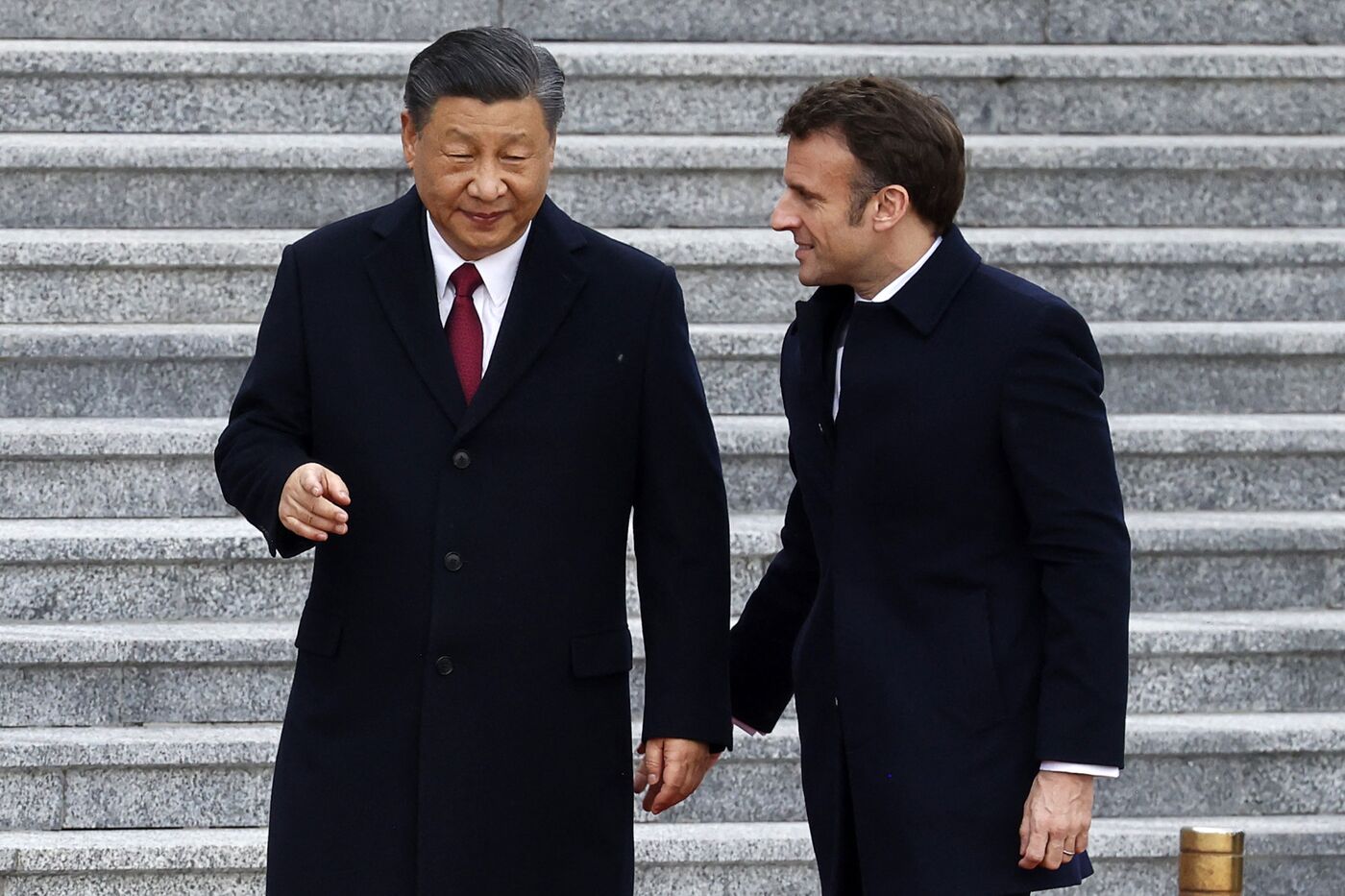
Xi and Macron in Beijing on April 6.
Photographer: Ludovic Marin/Getty Images
Click here to listen to our Twitter Space discussion on President Joe Biden’s trip to Ireland, what it means for the “special relationship” with the UK and for Northern Ireland’s troubled politics.
Coming Soon: Understand power in Washington through the lens of business, government and the economy. Sign up now for the new Bloomberg Washington Edition newsletter delivered weekdays. And if you are enjoying this newsletter, sign up here.
Global Headlines
Putin’s advantage | The decision by an empowered OPEC+ led by Saudi Arabia and Russia to cut crude output this month has the potential to cause all kinds of trouble for the US economy — and Biden’s reelection campaign. The rise in prices it sparked heightens recession risks and gives Russian President Vladimir Putin a bigger war chest to fund his attack on Ukraine.- Putin personally approved the arrest of Evan Gershkovich, sources say, in the first detention of a US reporter on espionage charges since the Cold War.
- Get more of our rolling coverage of the war in Ukraine here.
China-Russia Relationship Leads Among Concerns Held by Americans
Americans see Beijing-Moscow ties as top problem for the US in Pew surveySource: Pew Research Center
Note: Survey of about 3,500 US adults was conducted from March 20-26, 2023
Americans increasingly see China as an “enemy” of the US rather than a competitor, reflecting growing public skepticism over the ability for the world’s two largest economies to cooperate, according to a Pew Research Center survey. The report also highlighted worries about Xi’s relationship with Putin and the war in Ukraine.
Decision time | French unions are holding strikes again today against Macron’s pension reform ahead of a key decision tomorrow on the law’s constitutionality. The nine-member Constitutional Council said it will rule on the plan and an opposition-backed request to put the proposal to a referendum.
Best of Bloomberg Opinion
- Ukraine’s Spring Offensive Just Got Harder: Andreas Kluth
- Biden’s Irish Celebration Has an Unsung Hero: Matthew Brooker
- An Epic of Incompetence — and Redemption?: Adrian Wooldridge
Explainers You Can Use
- Macron’s ‘Startup Nation’ Becomes a Haven for Battered Crypto
- Biden Investment Pledge Is No Fix for Sunak’s N. Ireland Problem
- New Zealand Government Revamps Planned Water Reforms
Milk trouble | Milk is ubiquitous in India — from the morning glassful that most middle class school kids drink to its use in Hindu religious rituals. Now it could become a headache for Prime Minister Narendra Modi’s government as prices soar. A mix of factors is at play — a jump in the cost of cereals has made cattle feed more expensive coupled with lower dairy yields as cows were inadequately fed when the pandemic ruptured demand.
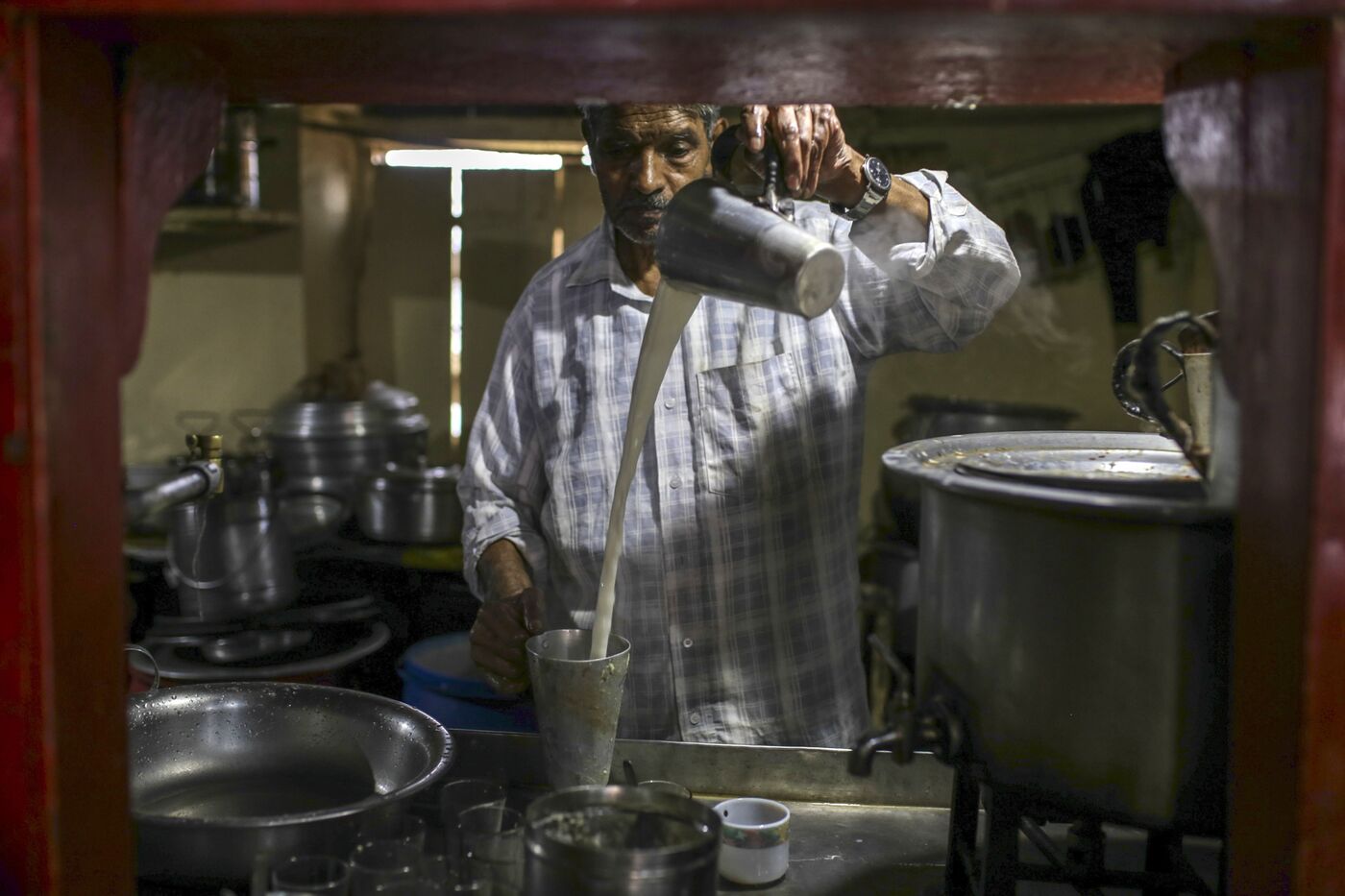
An man pours milk while making tea at a restaurant in Tamil Nadu.
Photographer: Dhiraj Singh/Bloomberg
Tune in to Bloomberg TV’s Balance of Power at 5pm to 6pm ET weekdays with Washington correspondents Annmarie Hordern and Joe Mathieu. You can watch and listen on Bloomberg channels and online here.
News to Note
- Sudan’s army accused the country’s most powerful militia of threatening national security by deploying troops in the capital, Khartoum, and other cities, ratcheting up fears of all-out conflict between the rivals.
- California’s Dianne Feinstein is the longest-serving woman in US Senate history. Now, as the 89-year-old battles health troubles some of her colleagues want her gone.
- Prime Minister Giorgia Meloni extended her revamp of Italy’s economic and business elite as her government replaced leaders at some of its biggest state-controlled enterprises.
- The World Bank arm that helps the poorest countries plans more concessional loans and grants to nations facing higher risks of debt distress, a move that could end the impasse hindering the restructure of debt held by low-income nations.
- Ecuador is in talks with the International Monetary Fund for a credit line of as much as $1 billion after the nation was hit by an earthquake, flooding and a landslide in recent weeks.

A farmer holds a dried soybean plant in San Jose de la Esquina, Argentina, on April 6.
Photographer: Natalia Favre/Bloomberg
— With assistance by Karl Maier



